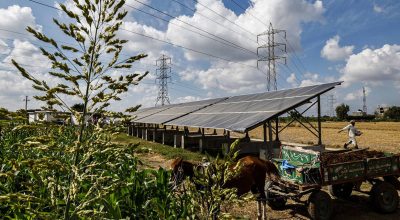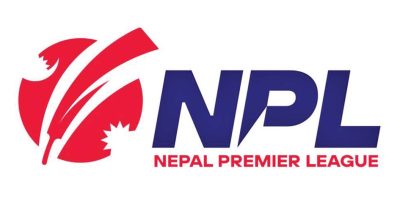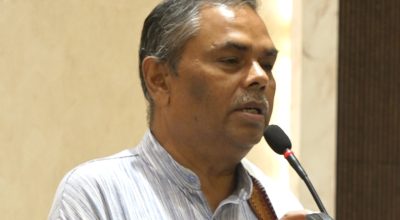
Anne-Marie Gulde-Wolf
Nepal’s program to reform its economy, supported by the IMF, is about much more than money. It demonstrates to the rest of the world, including donors and investors, that along with policy advice and technical assistance from the IMF, the country’s economy is stable, and the government is making progress to implement its reform agenda in areas like government revenues and spending, monetary and financial policies, and governance.
Nepal has indeed already made important strides on its economic reform agenda, supported by its arrangement with the IMF, which approved a third tranche worth about $52 million in November 2023. To name a few examples, decisive and data-driven monetary policy by the Rastra Bank has helped replenish international reserves and rendered unnecessary the use of import restrictions that reduce tax collection and are costly for businesses. Budget discipline by the Ministry of Finance despite a large revenue shortfall has helped preserve one of Nepal’s major economic strengths: a sustainable debt level.
Looking ahead, Nepal needs to fully unlock the country’s potential. While the economy is on a recovery path, growth at present is below potential and everyone, including the government and private sector, is eager for a stronger pickup. A critical near-term government policy to support growth now is to increase capital spending in a fiscally responsible manner. The donor community is keen to support such spending with concessional lending, but execution rates must improve. The Planning Commission is producing a public investment strategy, building on plans laid out in the budget and IMF advice, which should help accelerate capital spending.
That said, the government fiscal discipline must also be maintained. Striking this balance means that the government should address a major challenge, low fiscal revenue, as a priority. The government is taking some steps in this direction by preparing a domestic revenue mobilization strategy, with support from the IMF. With many tax exemptions already identified, progress is possible, with consistent work to move ahead.
Finally, there are also many risks in the horizon, such as higher commodity prices, global growth slowdown, and natural disasters that could reduce growth. In this context, Nepal should lean on its recent momentum to implement additional reforms that are needed to strengthen economic resilience by building buffers and durably improve economic opportunities.
The financial sector shows perhaps the greatest potential for long-term improvement. Credit-to-GDP went from roughly 50% to nearly 100% over the last decade, which is too fast. International experience has shown that it is not possible for credit to expand so fast based on healthy lending to good projects, and many countries with excessively rapid credit growth wind up with painful credit busts.
Nepal can avoid a sharp correction, but it will need to adjust its lending practices. Fortunately, the Rastra Bank has improved its supervisory system for banks and amended regulations on asset classification and working capital loans. These reforms aim at strengthening bank monitoring, stimulating proper loan classification and improving lending practices, thereby supporting a transition to more sustainable and pro-growth credit. We can already see a gradual shift in lending towards term loans, better suited for investments, and away from excessive working capital loans and overdrafts. The upcoming loan portfolio review will complement what has been achieved and help address remaining problems.
Finally, governance is a key pillar of Nepal’s program. Advancing governance reform and moving towards international standards will help showcase Nepal’s improving institutional strength to the global community and help attract international investors. Priorities include amending the NRB Act, enhancing the external audit of the NRB, and addressing current weaknesses in the anti-money laundering/combatting the financing of terrorism (AML/CFT) framework by the recent passing of the AML/CFT amendment bill and raising effectiveness on the ground.
Nepal is engaging with the world more than ever. The upcoming Investment Summit presents an opportunity to showcase Nepal’s economic potential. In addition to the reforms already mentioned, Nepal will get the most out of the Summit and its emerging international stature if it improves swiftly and durably its investment climate, builds human capital, and improves social safety nets. The government is leading the way, with help from the IMF. Nepal is full of tremendous potential, and the IMF is a partner to support the country achieve it.
***
Anne-Marie Gulde-Wolf is Deputy Director of Asia and Pacific Department at the International Monetary Fund (IMF). Tidiane Kinda is Mission Chief for Nepal and Deputy Division Chief of the Asia and Pacific Department at the IMF.












